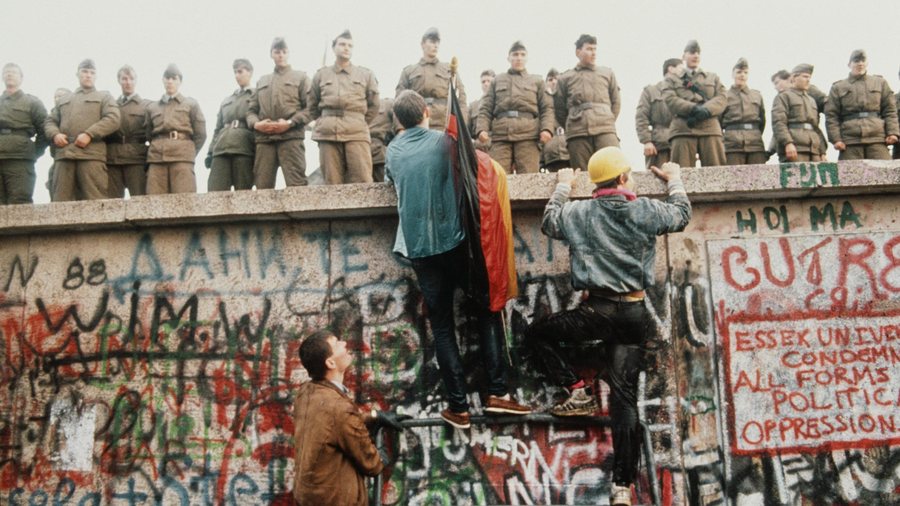35 years after the fall of the Berlin Wall - The importance of 9 November 1989 in the history of Europe

On November 9, Germany celebrates the 35th anniversary of the fall of the Berlin Wall, an event that changed the world. A year later, on October 3, 1990, Germany was reunited after 41 years of separation. With the fall of the second dictatorship on German soil, i.e. the end of the German Democratic Republic (East Germany), the socialist experiment disappeared from the political map of Europe. The West-East conflict ended. November 9, 1989 marks a day of particular importance for the history of Germany and the continent.
"Unbelievable" was the word heard most often that night, when the borders were suddenly opened to the citizens of East Germany. In fact, months ago there were protests against the state's totalitarian regime. Thousands of people had entered the embassies of the Federal Republic of Germany (West Germany) and some Eastern European countries seeking political asylum. The pressure to ease the possibility of free movement of citizens had been increasing day by day for months.
But no one expected what happened on November 9, 1989. When, during an international conference in East Berlin, it was announced that new laws on free movement would come into force immediately, there was no way to stop them. measures. Tens of thousands of people immediately crossed the inner border of divided Berlin.
After this night there was no turning back. The first crack in the Berlin Wall brought about the complete collapse of the system. This fact cannot be changed even by the difficulties brought to Germany by the fall of the Berlin Wall. Creating internal unification needs more time than state reunification.
But in the German historical calendar, November 9 has played an important role in other eras as well: On November 9, 1918, the social democrat Philipp Scheidemann declared from a balcony of the Reichstag (parliament) in Berlin that Germany was already a Republic. The monarchy of Emperor Wilhelm II had come to an end. The German economy would strengthen in these years, becoming the largest in Europe. Meanwhile, among eurozone countries last year, it weakened due to the impact of high energy costs, small global orders and record high interest rates.

About 50 million euros more for order and security / Increasing police operations, among the main priorities for the next two years
The budget of the "Ministry of the Interior" foresees a fund of 31 billion lek in 2025, or about 50 million euros more, compared to 2024. Expressed in......

The eligibility criteria for unemployment benefits are eased - It is enough to have paid social insurance for one year. Two other conditions are removed
The criteria for unemployment benefits have been eased for people who have been out of the labor market for a certain period of time. The new changes that......

1.6 million euros for the new bridge of Viroi in Gjirokastër - Works start with WB funds, lane width 2 x 3.5 m
Work has started on the construction of the Viroi bridge in Gjirokastër with the funds of the World Bank. 1.6 million euros will be used for this project and......

ADFZ, tender 341 million lek for the infrastructure of the former CEC buildings - Deadline for interested operators, until November 25, 2024
The Albanian Development Fund has opened the tender for supporting the accommodation infrastructure of the CEC; construction of storage buildings, SEC/EX-CEC......

Snow in the desert? – The rare phenomenon in Saudi Arabia, a confirmation of climate change!
Saudi Arabia's Al-Jawf region has experienced its first snowfall on record, transforming the arid landscape into a winter wonderland. With snowflakes......

How can Elon Musk benefit from Trump's presidential victory?!
As Donald Trump celebrated his presidential victory early Wednesday morning, Elon Musk was right there with him. "A star is born. Elon," Trump said on stage......

China announces $1.4 trillion package to tackle "hidden" local government debt!
China announced on Friday that the central government will allocate an additional 6 trillion yuan ($840 billion) to local governments to deal with hidden......

What does Trump's historic victory mean for the global economy?!
Donald Trump's election victory over Vice President Kamala Harris marks a historic return to the White House—a remarkable political comeback that is likely......


















